Managing Maxed-Out Credit Cards: Steps Toward Financial Recovery
Maxing out credit cards can be a stressful and overwhelming situation, leaving many individuals feeling trapped in a cycle of debt. However, it’s essential to remember that you’re not alone, and there are practical steps you can take to address this challenge and work towards financial recovery. In this blog, we will explore what to do when your credit cards are maxed out and how to regain control of your financial situation.
1. Assess Your Debt
The first step in addressing maxed-out credit cards is to face the reality of your debt. Gather all your credit card statements and calculate the total outstanding balance. Understanding the extent of your debt is crucial in developing a plan to tackle it effectively.
2. Create a Budget
Developing a comprehensive budget is essential to manage your finances and pay off your debts. List all your sources of income and categorize your monthly expenses. Identify areas where you can cut back on spending and redirect those funds towards debt repayment. A well-structured budget will provide a clear picture of your financial situation and guide you towards becoming debt-free.
3. Prioritize Debt Repayment
When dealing with multiple maxed-out credit cards, focus on prioritizing debt repayment. Two common strategies are the snowball method and the avalanche method. The snowball method involves paying off the smallest debt first while making minimum payments on other cards. Once the smallest debt is paid off, move on to the next smallest, creating momentum as you eliminate debts. The avalanche method prioritizes paying off the debt with the highest interest rate first, saving more on interest payments over time.
4. Negotiate with Credit Card Companies
If you’re struggling to keep up with credit card payments, consider reaching out to your credit card companies. Explain your financial situation and inquire about possible hardship programs or payment plans. Some creditors may be willing to lower interest rates, waive late fees, or work out a revised payment schedule to help you manage your debt.
5. Consolidate Debt
Debt consolidation involves combining multiple debts into a single, more manageable loan or credit line. This can be a useful option if you have high-interest credit card debt. Research balance transfer credit cards or personal loans with lower interest rates to consolidate your credit card balances. However, be cautious and read the terms carefully, as some balance transfer offers might come with introductory rates that increase after a certain period.
6. Build an Emergency Fund
Having an emergency fund is essential, especially when working to pay off maxed-out credit cards. Establishing a savings buffer can prevent you from relying on credit cards in case of unexpected expenses. Aim to set aside three to six months’ worth of living expenses in an easily accessible savings account.
7. Avoid New Credit Card Debt
Resist the temptation to open new credit cards or incur additional debt while you’re working on paying off existing ones. Focus on sticking to your budget and prioritizing debt repayment to prevent your financial situation from getting worse.
8. Seek Professional Help if Necessary
If managing maxed-out credit cards becomes overwhelming, consider seeking assistance from a financial counselor or advisor. These professionals can offer personalized guidance and support in developing a debt management plan tailored to your specific needs.
9. Celebrate Progress
Paying off maxed-out credit cards is a challenging journey, but it’s essential to celebrate the progress you make along the way. Acknowledge each milestone and debt paid off, no matter how small. Celebrating achievements will help you stay motivated and maintain a positive outlook on your financial recovery.
10. Learn from the Experience
Finally, use this situation as a learning experience to build better financial habits. Take the lessons you’ve learned from managing maxed-out credit cards and apply them to your future financial decisions. Practice responsible credit card usage, stick to your budget, and prioritize saving to avoid falling into debt again.
Conclusion
Dealing with maxed-out credit cards may seem daunting, but with determination and a well-structured plan, you can overcome this financial challenge. Assess your debt, create a budget, and prioritize debt repayment using suitable strategies. Negotiate with credit card companies if needed and consider debt consolidation options. Building an emergency fund and seeking professional help when necessary are crucial steps in regaining control of your financial situation. Stay committed to your financial goals, celebrate your progress, and use this experience to build a brighter financial future. Remember, with perseverance and financial discipline, you can conquer your debt and achieve financial freedom.

